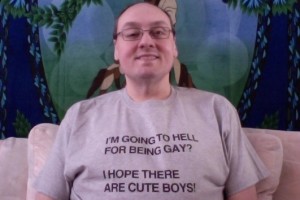This blog has been running on a self-hosted instance of the WordPress blogging software since I migrated over from the (also self-hosted) Movable Type software back in May of 2013. I’ve never regretted the decision to make the move and actually love WordPress. It’s handy, versatile, and easily-extended platform.
Though for the past few months, I’ve been having trouble with their JetPack plugin. The worst of the problems is that every now and then, when I do a plugin, the whole system would have to go down. Then I’d have to deactivate Jetpack and possibly even disconnect my blog from the WordPress.com site and then set it all back up.
Well, tonight, I managed to resolve those problems. it was pretty easy to fix in the long run. It was mainly a matter of contacting my hosting provider and having them enable another extension to PHP for my server. Then I also found out that my PHP configuration was limiting memory to a ridiculous number, which I was able to fix myself. And now, I have a happy blog that plays nice with JetPack again. Cool!
Of course, having spent the time to sort through that, I feel like I need and want to get back into blogging. That’s something I’ve been thinking about for a while, to be honest. After all, I felt really energized after writing blog posts participating in the #OcculTea conversation. Then again after appearing on The Mocha Widow’s podcast.
What I struggle with is how to keep up the steam. And if I’m being honest, I feel like this has been a recurring problem for me. I look back at the number of abandoned — and it feels like failed — projects I’ve started up:
- An audio podcast
- A YouTube channel
- A novel (actually more than one, but I’ll just link to the one)
- A brief stint on TikTok
- A brief stint on Instagram
- A newsletter
I think the only thing I’ve been able to stick with has been microblogging at sites like Twitter (I will never call it “X”) and Threads. And that’s mostly because (1) it’s easy to come up with something that’s only a couple hundred characters long to say and (2) I’m often just silly there. A blog requires something longer and more serious. (As do many of the other mediums I’ve experimented with in the above list.)
Of course, I think another thing that helps me on those particular sites is the engagement. I almost always get some feedback on Twitter and Threads. But when it comes to my longer content, whether it be a blog or a YouTube video? Not so much. And that’s a bit discouraging. I won’t deny that or apologize for feeling that way.
However, it’s also more than that. Engagement energizes and inspires me. When I get feedback, it often makes me think of other things I want to say. When I don’t get such feedback, I often feel like I’m stumped wondering what else I actually have to say. The engagement keeps me thinking.
This is something I realized after doing the Interview with The Mocha Widow. i jokingly thought to myself that I’m a much better guest than a podcast host myself. Though maybe that was the mistake with my podcast. I wasn’t inviting guests on, but merely trying to fill the show with only my own thoughts.
In some ways, that’s also why I often miss diary communities like OpenDiary, which is where I got my blogging start (though we didn’t call it as such over there). We read each others diary entries and commented on them. And often we replied to comments on the other person’s own diary. We had whole conversations going there. (Weirdly, I feel like sites like LiveJournal and Tumblr have tried to recapture that community feel, but it just doesn’t seem the same to me.)
I’m not sure how many people really see this blog by comparison. It’s standalone. There aren’t diary circles I can submit posts to. There aren’t other bloggers on the site looking to join in. So part of the trick to get engagement hear is just to get people reading what I write here in the first place. And I’m not entirely sure how to do that anymore.
I also think I need to work on getting more inspiration by engaging in things myself. For example, I haven’t read many books on Paganism and witchcraft lately. I mean, it had probably been a full year before I borrowed a Kindle Unlimited copy of Essential Asatru last month. So I think getting back into some appropriate reading might help give me new things to talk about. Or maybe even just new perspectives on old things I’ve talked about before.
I do know I’ve been thinking I’d like to start reading some of the Pagan theology books I started looking up. So that may be a good place. Plus I have all the Icelandic sagas and other source materials for Norse/Germanic culture and religion that I still need to read. Maybe that will help get the creative juices flowing as well.
And as always, if you’re reading this, you are more than welcome to leave your thoughts and suggestions in the comments. After all, as I noted earlier, I thrive on engagement/feedback. So how about providing some nourishment for your friendly neighborhood wyrd-worker?

